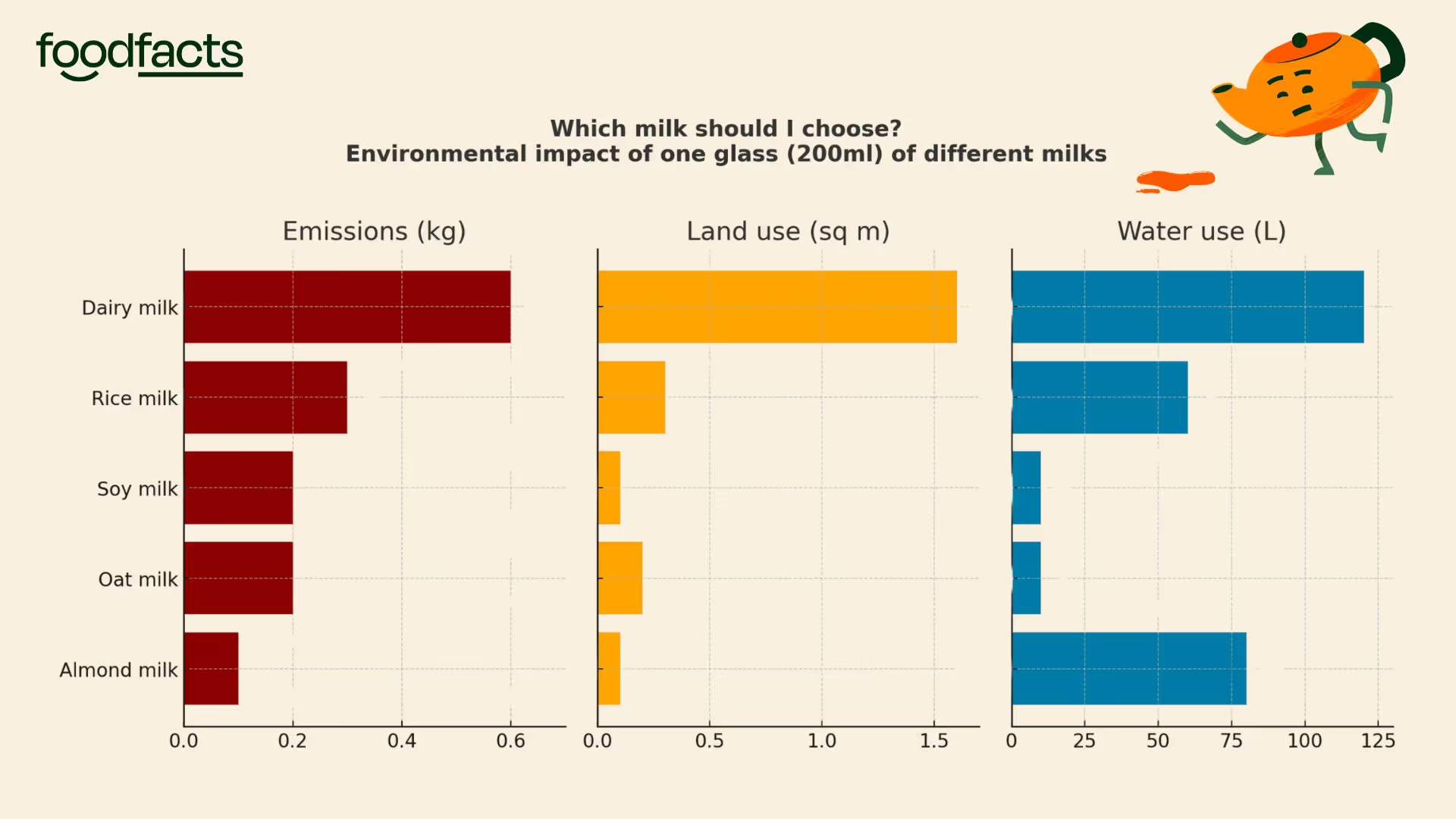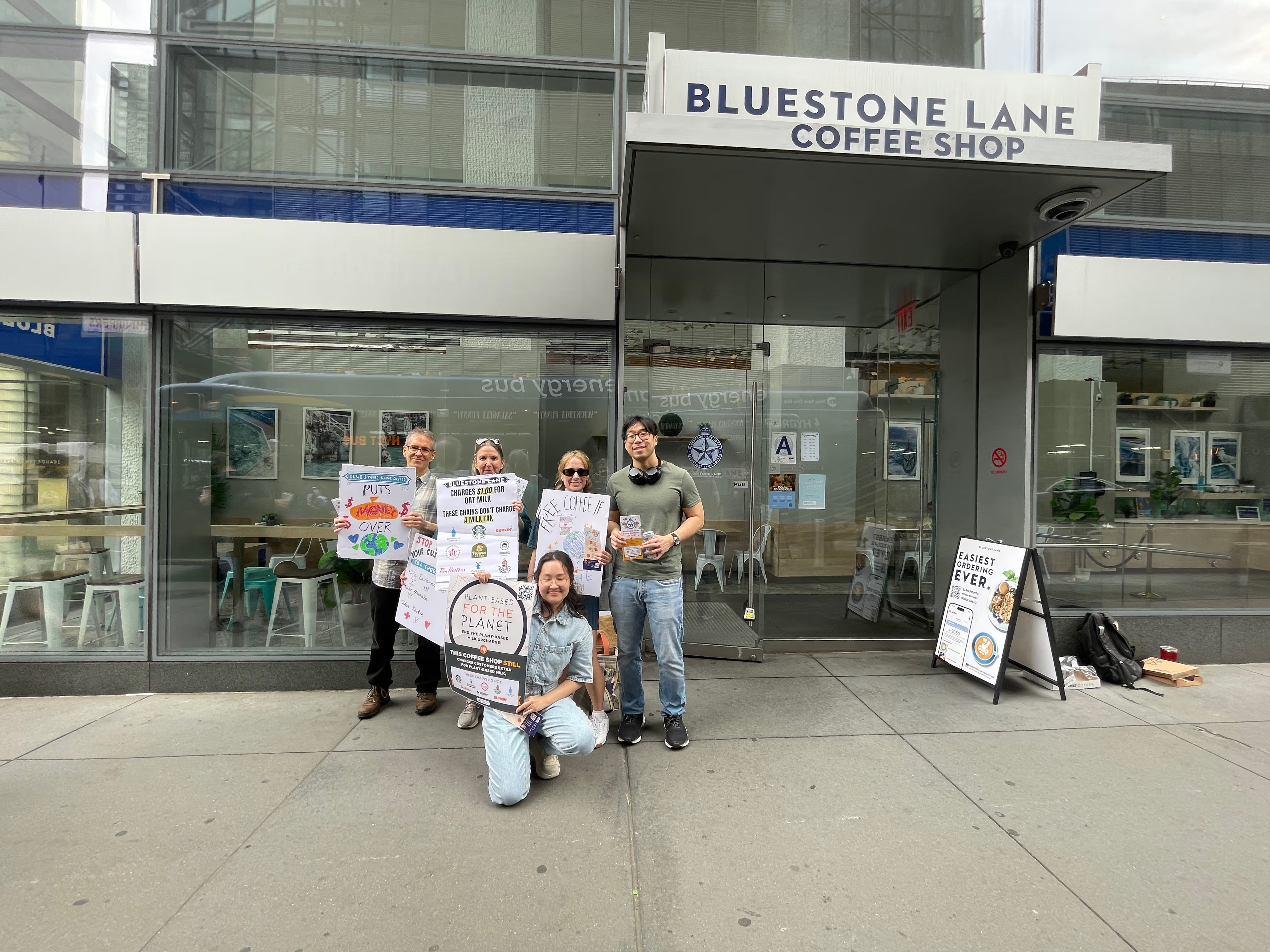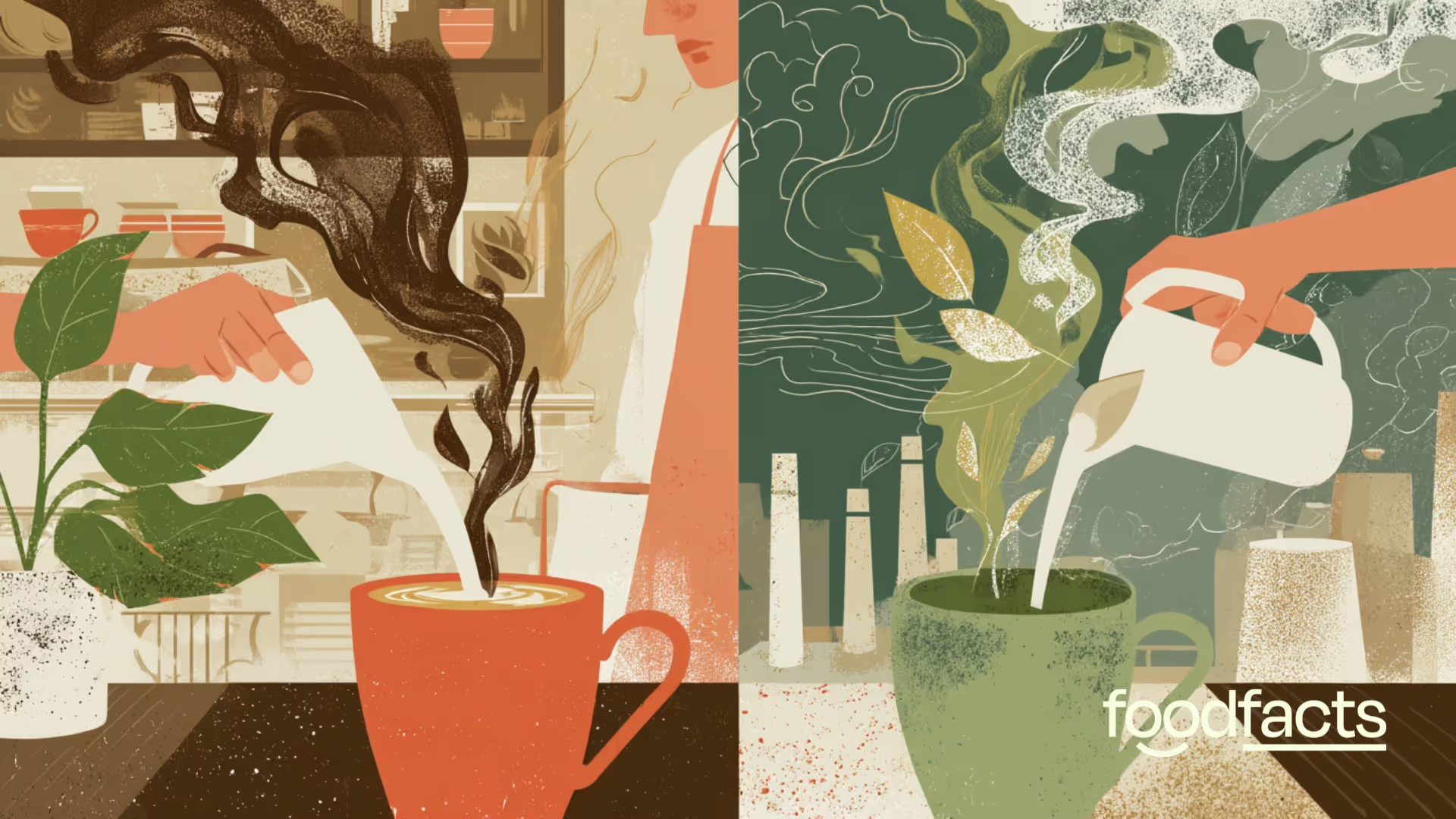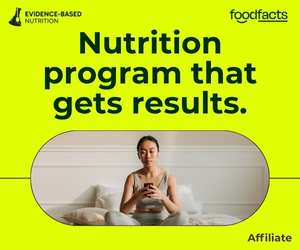
Brewed awakening: how dairy in coffee chains is still harming the earth





Coral Red: Mostly False
Orange: Misleading
Yellow: Mostly True
Green: True
Learn more about our fact-checking policies
Every day, millions of people around the world enjoy their favorite coffee beverages, often without considering the environmental impact of their choices. One significant factor is the type of milk added to these drinks. While dairy milk has been a traditional choice, its production is resource-intensive and contributes substantially to greenhouse gas emissions. In contrast, plant-based alternatives like oat, soy, and almond milk generally have a lower environmental footprint.
In November 2024, Starbucks, the world's largest coffee chain, announced it would eliminate the surcharge for plant-based milk alternatives in its U.S. and Canadian stores. This decision followed years of advocacy from groups like PETA and Switch4Good, who highlighted both the environmental and ethical concerns associated with dairy consumption. By removing the additional charge, Starbucks aimed to make climate-friendly choices more accessible to its customers.
The Environmental Impact of Milk Choices
The production of dairy milk is significantly more taxing on the environment compared to plant-based alternatives. According to data from Our World in Data, producing a liter of dairy milk results in approximately 3.2 kg of CO₂-equivalent emissions, requires 8.9 square meters of land, and consumes 628 liters of water. In contrast, oat milk production emits about 0.9 kg of CO₂-equivalent, uses 0.8 square meters of land, and requires 48 liters of water per liter produced.
These stark differences underscore the environmental benefits of choosing plant-based milks. By opting for alternatives like oat or soy milk, consumers can significantly reduce their carbon footprint and conserve vital natural resources.

Accessibility and Equity Concerns
Beyond environmental considerations, the choice of milk in coffee also intersects with issues of accessibility and equity. Lactose intolerance affects a significant portion of the global population, particularly among people of East Asian, African, Native American, and Hispanic descent. Charging extra for plant-based milk options can disproportionately impact these communities, effectively penalizing individuals for their dietary needs.
Recognizing this, several major coffee chains have followed Starbucks' lead in removing surcharges for non-dairy milk. Dunkin', for instance, eliminated its plant-based milk upcharge in March 2025, making these alternatives more accessible to a broader customer base.
In March 2025, it was announced that both The Human Bean and Peet’s Coffee committed to removing surcharges for plant-based milk, following discussions with the organization's corporate engagement team. Additionally, Scooter’s Coffee, the fourth-largest coffee chain in the U.S., eliminated its plant-based milk upcharge after a year-long collaboration with an NGO. These efforts are part of the organization's broader campaign to make plant-based options more accessible and to promote equity in the food industry.
Companies Lagging Behind
Despite the positive trend, some coffee chains continue to impose additional charges for plant-based milk. Biggby Coffee, for example, has faced criticism and legal challenges over its surcharge policies. A lawsuit filed in June 2024 alleges that the company's extra fees for non-dairy milk discriminate against lactose-intolerant individuals, potentially violating the Americans with Disabilities Act.
Similarly, Bluestone Lane, a chain that markets itself as environmentally conscious, still charges up to $1.50 extra for plant-based milk options. This practice has drawn scrutiny from consumers and advocacy groups who argue that it contradicts the company's stated commitment to sustainability.

The Path Forward
The shift toward eliminating surcharges for plant-based milk in coffee shops reflects a growing awareness of environmental and social issues among consumers and businesses alike. By making climate-friendly choices more accessible and affordable, companies can play a pivotal role in promoting sustainability and equity.
As consumers, being informed about the environmental impact of our choices empowers us to advocate for better practices. Supporting businesses that prioritize sustainability and inclusivity can drive positive change across the industry.

Stand Against Nutrition Misinformation
Misinformation is a growing threat to our health and planet. At foodfacts.org, we're dedicated to exposing the truth behind misleading food narratives. But we can't do it without your support.



foodfacts.org is an independent non-profit fact-checking platform dedicated to exposing misinformation in the food industry. We provide transparent, science-based insights on nutrition, health, and environmental impacts, empowering consumers to make informed choices for a healthier society and planet.

Was this article helpful?















.svg)
